The whole society's research and development of virtual reality originated in the 1960s, computer graphics, human-machine interface technology, image processing and pattern recognition, multi-sensor technology, voice processing and sound technology, high-performance computer systems, labor In the latter half of the century, the field of intelligence has made a solid foundation for the explosion of the virtual reality industry.
Oculus, which was acquired by Facebook for $2 billion in 2014, is already the leader in the VR industry. It is expected to launch the first generation of commercial virtual reality headset Oculus Rift for the public in early 2016; Sony is the industry leader in 3D helmets and is expected to PlayStaTIon VR was launched in the first half of the year, and it is used with PS4. At present, nearly 20 games will be released at the same time.
Recently, Samsung and Facebook jointly launched a new Gear VR virtual reality helmet. Users connect the smartphone to the helmet through the Micro USB interface, and when they watch the video, they can pass through time and space. Similarly, Google Inc. of the United States has also launched a simple virtual reality helmet for Android devices - Google Cardboard; Facebook Research has launched its exclusive virtual reality helmet Oculus Rift.
So the question is, what exactly is VR, AR, MR and CR talking about?
VR is indeed the future
The poor Google Glass, which was once highly hoped and later eliminated, only moved the display to the glasses, while VR and other *R products changed the way humans interact with the world. Based on these *R devices, we can never do anything else. Ways to explore the world, work, study, entertain, socialize and even enjoy sex.
VR's *R technology brings humanity into the "three-dimensional" information perspective. Through *R technology, we view the world's digital records from all angles, watch news, watch games, watch movies, see beautiful women... Digital World and The convenience of the physical world has been blurred under the blessing of AR technology (augmented reality), and we are in a world where bits and the atomic world are mixed. This will completely subvert the way we get information, generate information, interact with the world, and produce, just as computers have changed the world, and it sounds exciting.
In just one year, the new concept around VR has been dazzling, which makes people feel the technology industry is a thousand miles away - of course, the technology circle itself is very keen to create new concepts. Here you may wish to start a science, the concepts about *R:
VR (Virtual Reality), virtual reality
Immersively enter the virtual world to consume content, giving users the feeling of being there. The content can be movies, contests, landscapes, news, etc. Some content can also interact, such as VR games can track your movements, gait, eyeballs, squats and more.
VR consumer devices can now be divided into three categories: Oculus Rift, which is required to be equipped with a computer, is not yet commercially available; VR conversion bracket for projecting mobile phone content, representing a storm mirror, CardBoard; Peripheral VR all-in-one. There are also professional VR content production equipment such as Nokia OZO.
VR is still in its infancy, and problems such as lack of content and application, wearing comfort, and human-computer interaction are still difficult.
AR (Augmented Reality), augmented reality
If VR is to give consumers a 100% virtual world, then AR is based on real-world entities, with digital technology to help consumers better explore the real world and deliver it.
The most typical AR device is Google Glass (China corresponds to BaiduEye). When you stare at a restaurant, you can retrieve relevant information and display it. When you stare at a certain beauty, it displays its measurements, similar to such an application. .
If we take a picture with a mobile phone and then perform an image search or perform a PS operation to calculate AR? Not counting, because AR means that you must interact with the physical world in real time. As device computing power, image processing capabilities, and network connectivity become more powerful, AR applications will become more widespread.
The difference between VR and AR:
Simply put, virtual reality (VR), seeing scenes and characters are all fake, is to put your consciousness into a virtual world. Augmented reality (AR), the scenes and parts of the characters that are seen are true and part of the fake, bringing virtual information into the real world.
Interactive difference
VR device: Because VR is a pure virtual scene, VR equipment is more used for interactive interaction between users and virtual scenes. More use is: location tracker, data glove (5DT and the like), dynamic capture system, Data helmets and more.
AR equipment: Since AR is a combination of real scene and virtual scene, it basically needs a camera. Based on the screen shot by the camera, it is combined with virtual screens for display and interaction, such as GOOGLE GLASS (in fact, strictly speaking, IPAD, mobile phone) These products with cameras can only be used for AR, as long as the AR software is installed.)
Technical difference
Similar to game production, creating a virtual scene for human experience, the core of which is the performance of graphics. The most contact with us is the application in the game. It can be said that it is an upgraded version of the traditional game entertainment device, mainly focusing on whether the virtual scene has a good experience. And whether it is related to the real scene, they don't care. VR devices are often immersed, and the typical device is the oculus rift.
AR uses a lot of computer vision technology. The AR device emphasizes the ability to restore human vision, such as automatically identifying the tracking object, rather than manually pointing out; autonomous tracking and 3D modeling of the surrounding real scene, rather than opening Maya to do a very similar scenario. A typical AR device is a normal mobile phone, and an upgraded version such as Google Project Tango.
MR (Mix Reality), mixed reality
Strictly speaking, Xilo visits Microsoft's Hololens is not an AR device, because it is not just an augmented reality, the function HoloLens is "Oculus Rift." You can wear it for motorcycle design, and there may be some components in the real world that may or may not be there.
You wear it to play games in the living room, the living room is the map of your game, and some virtual elements are integrated. In short, the MR device gives you a chaotic world: if you use digital simulation technology (display, sound, touch), you can't feel the difference.
It is precisely because this MR technology has more imaginative space that it will bite the physical world in real time and thoroughly, and it also includes the functions of VR and AR devices. It is reported that the version of the HoloLens developer developed by Microsoft will be available in the first quarter of 2016, priced at 3,000 US dollars, I hope not to skip the ticket.
CR (CinemaTIc Reality), image reality
This is the concept proposed by Google's investment Magic Leap, mainly to emphasize the difference between VR and AR technology. Similarly, it thinks it is different from MR. In fact, the concept is similar, which is the convenience of blurring the physical world and the virtual world. The tasks completed, the scenarios applied, and the content provided are similar to the MR products.
The core of this is, "Designed by light-wave-conducting prisms, Magic Leap projects the image directly from the user's retina from multiple angles, thus achieving the purpose of "spoofing" the brain. That is to say, it is different from the screen projection display technology, through this technology, to achieve a more realistic impact, directly interact with the retina, to solve the problem of Hollenens vision is too narrow or dizzy.
After all, it's just a different implementation of MR technology. Google is optimistic about Magic Leap to illustrate the particularity of this technology, which echoes the "retina projection" mentioned by Ma Huateng. However, when Magic Leap will let everyone wait for a long time, there is no answer.
Item:Hose clamps
Standard: British, America, Germany, Italy,T-Bolts and others
Material: Carbon steel, Stainless steel or as required
Finishing: Siler zinc coated or Yellow Zinc coated
Application: For industrial piping, agricultural irrigation, auto parts and other places for fixation.
Germany standard:
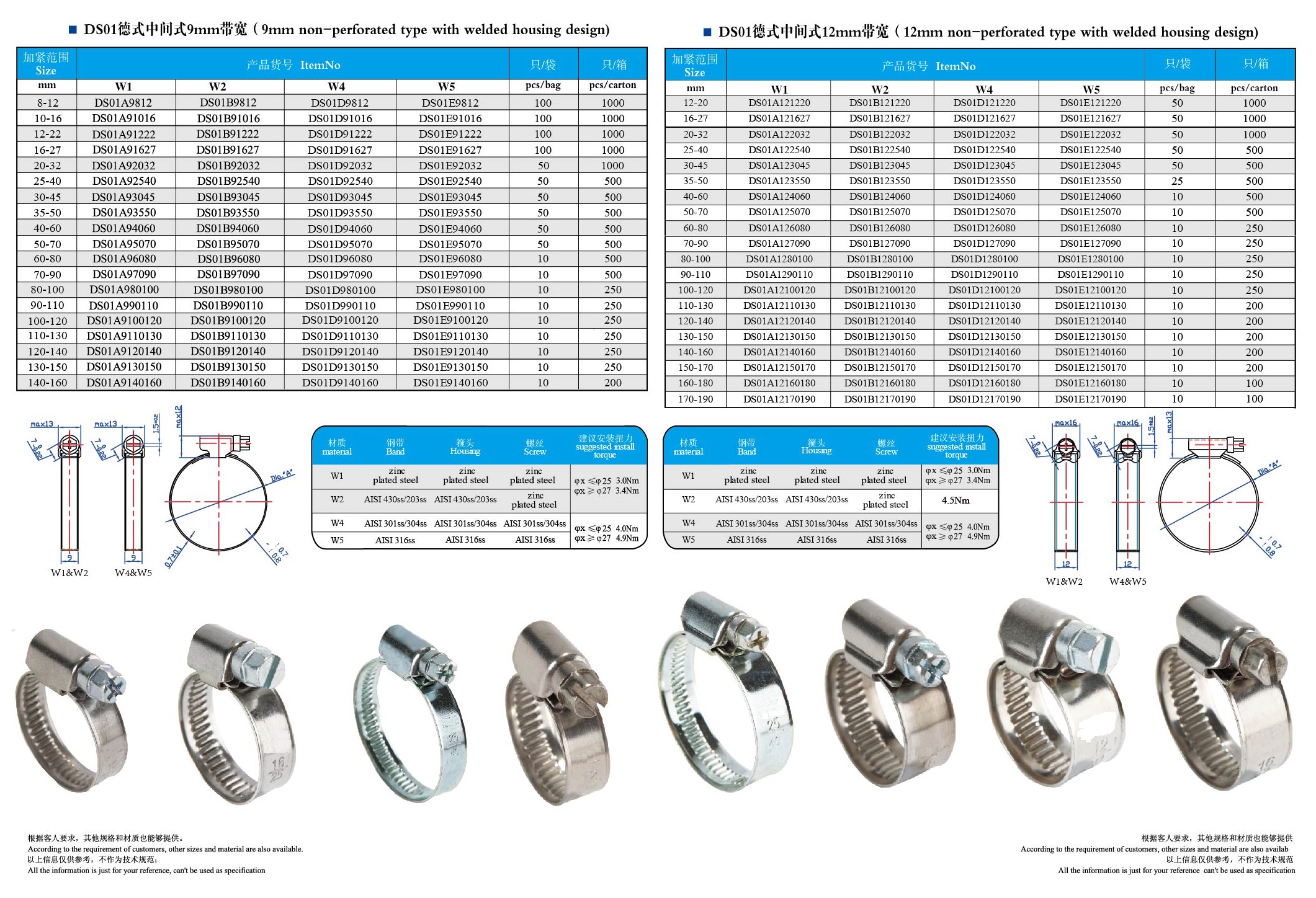
British standard:
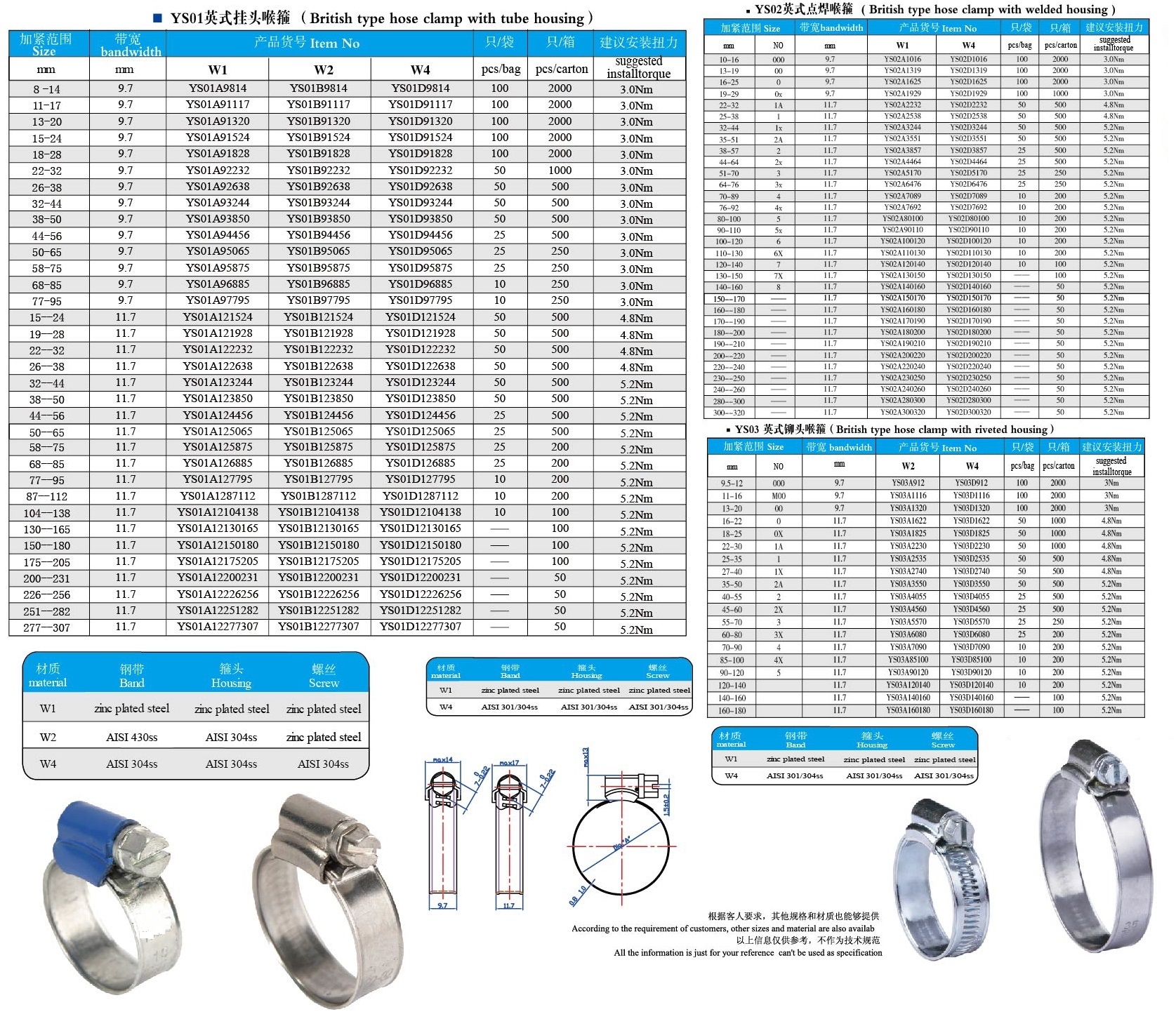
Italy standard:
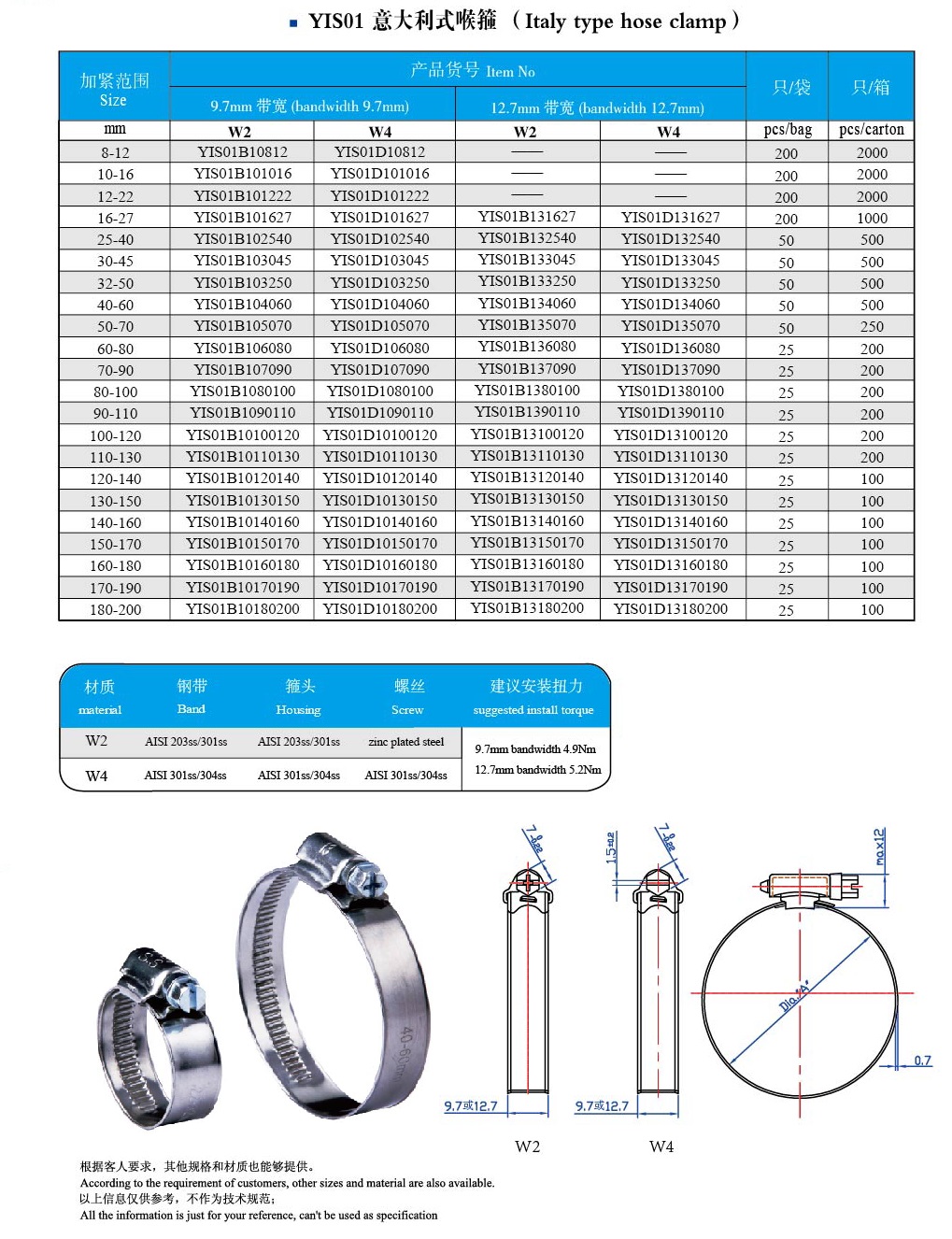
American standard:
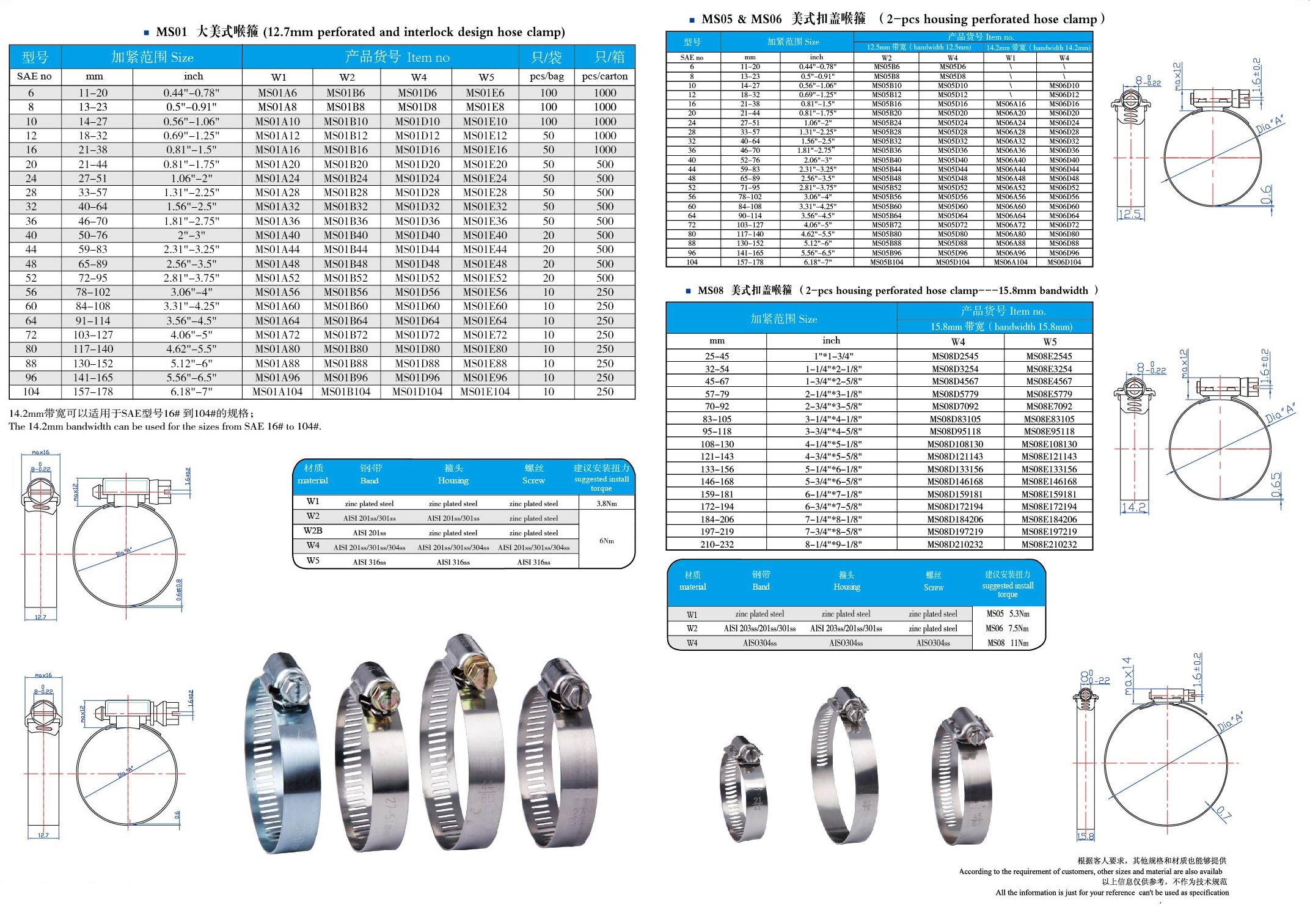
T-bolt Clamps:
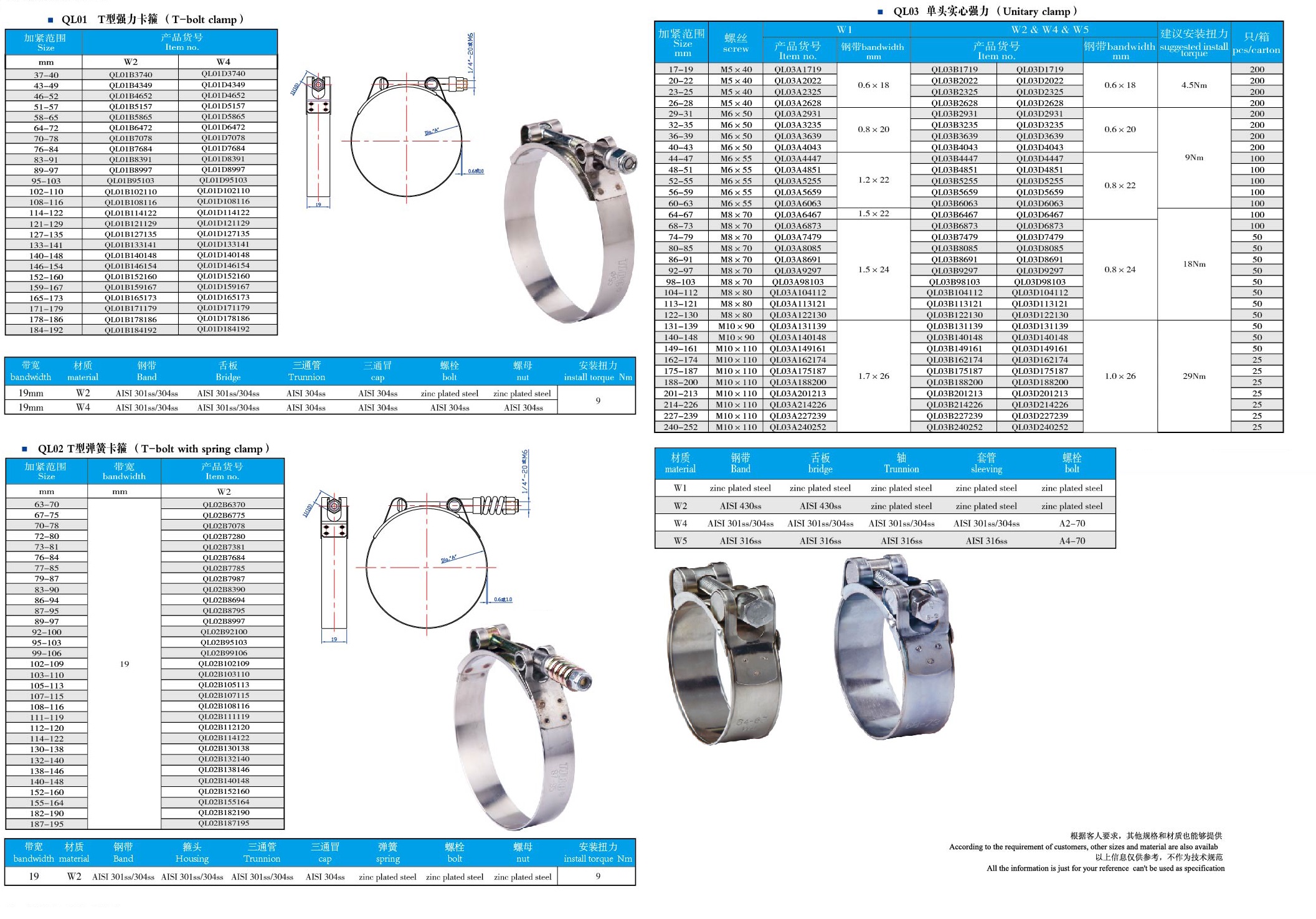
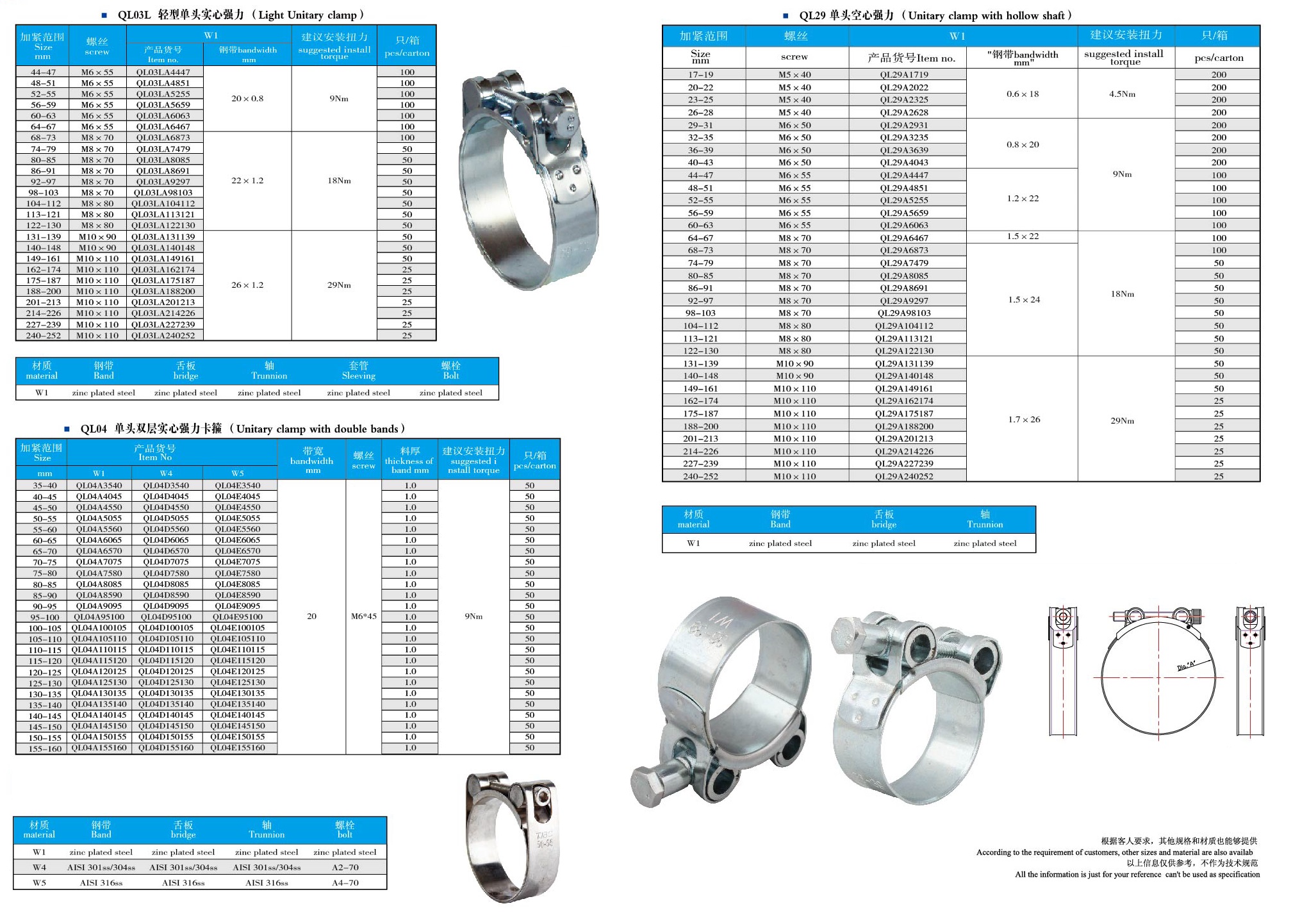
Hose Clamps,Flexible Clamps,Stainless Steel Hose Clamps,Warm Drive Clamps
HEBEI ZIFENG NEW ENERGY TECHNOLOGY CO.,LTD. , https://www.zifengpipeline.com